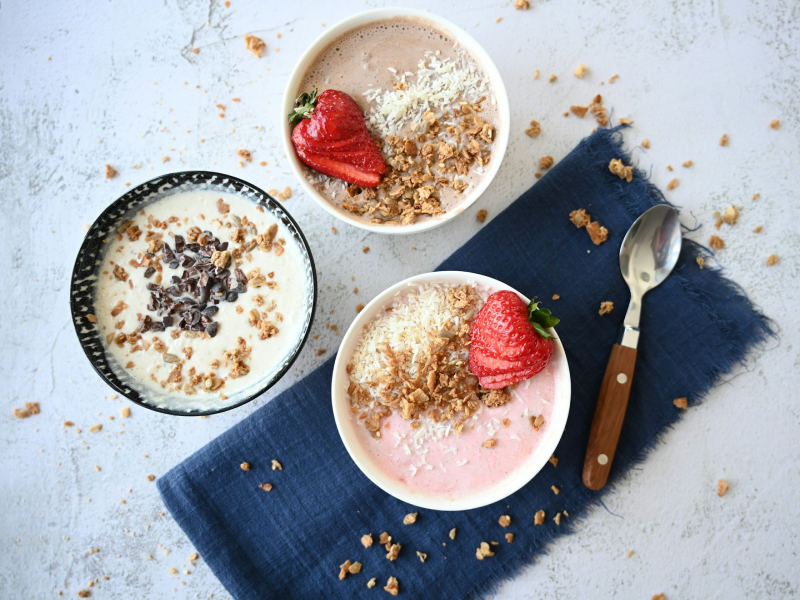Table of Contents

Breakfast has long been hailed as the most important meal of the day, and for many of us, oatmeal is a staple choice. Recently, however, it’s found itself at the center of controversy, with cardiologist Dr. Jack Wolfson claiming that oatmeal is not as beneficial as many believe. With over 4.6 million views on his TikTok video, Dr. Wolfson dismissed oatmeal as "propaganda" with "no nutritional value," sparking outrage from other experts. But is there any merit to his claims, or does oatmeal still deserve its place in a balanced breakfast?
Here, we’ll explore both sides of this debate, discuss oatmeal’s true nutritional benefits, and offer thoughtful recommendations for incorporating it into a healthy diet.
Dr. Jack Wolfson, a cardiologist based in Arizona, recently made waves by advising against oatmeal consumption. He argued that our ancestors didn’t eat these grains and claimed the food carries "no nutritional value" due to “anti-nutrients” present in oats. According to him, eggs are a far superior breakfast option, packed with essential vitamins, minerals, proteins, and fats that meet our nutritional needs.
Dr. Wolfson even challenged the widely recognized benefits of oatmeal, stating that its popularity is largely driven by corporate marketing efforts from brands like Quaker Oats and Kellogg’s, rather than actual health advantages.
However, Dr. Wolfson’s statements have been met with considerable skepticism and criticism. Medical professionals have stepped forward to refute his claims, pointing to years of research that highlight oatmeal’s proven health benefits.
While Dr. Wolfson presents an unconventional view, here’s why many experts continue to endorse oatmeal as a healthy breakfast choice:
Oatmeal is widely recognized as a heart-healthy food, largely due to its beta-glucan content. This type of soluble fiber has been scientifically proven to lower LDL (bad) cholesterol levels, reducing the risk of cardiovascular disease. A study in Frontiers in Pharmacology even linked oats’ antioxidants to improving blood pressure by increasing nitric oxide levels, which helps widen blood vessels and enhance blood flow.
Thanks to its low glycemic index, oatmeal is an excellent choice for keeping blood sugar levels stable. This makes it particularly beneficial for those managing diabetes or seeking to avoid sharp sugar spikes and energy crashes.
Oats are far from nutritionally void. They are rich in essential nutrients, including manganese, phosphorus, magnesium, iron, B vitamins, and unique antioxidants like avenanthramides. These nutrients contribute to improved brain function, immune system support, and overall wellness. A single cup of prepared oatmeal provides about 20% of a woman’s recommended daily fiber intake and 10% for men.
High in soluble fiber, oatmeal promotes satiety by keeping you full longer. It reduces calorie intake throughout the day, making it a smart option for those looking to manage their weight.
The fiber in oatmeal not only supports regular digestion but also acts as a prebiotic, feeding beneficial gut bacteria and fostering a healthy microbiome.
Despite its benefits, the way oatmeal is prepared can greatly influence its overall health impact. Here are some tips to maximize its nutritional value:
By customizing your oatmeal, you can enjoy a nutrient-packed breakfast that aligns with your health goals.
It’s worth noting that you don’t have to choose between oatmeal and eggs. Together, they can create a well-rounded breakfast option, combining the fiber and nutrients of oats with the protein and healthy fats of eggs. Pairing these two powerhouses offers the best of both worlds, delivering energy, satiety, and essential nutrition to fuel your day.
For example, try this balanced breakfast:
This combination is an excellent way to start your morning on a high note, supporting both heart health and overall well-being.
While Dr. Wolfson’s bold claims have stirred debate, scientific research consistently highlights oatmeal’s significant health benefits. When prepared thoughtfully and consumed in moderation as part of a balanced diet, oatmeal can be a valuable addition to your mornings.
If you’re searching for more heart-healthy eating tips and recipes, be sure to explore our extensive library of health and wellness articles on our website. And don’t hesitate to share your experiences or questions about oatmeal in the comments—your insights could help others make informed choices for themselves.